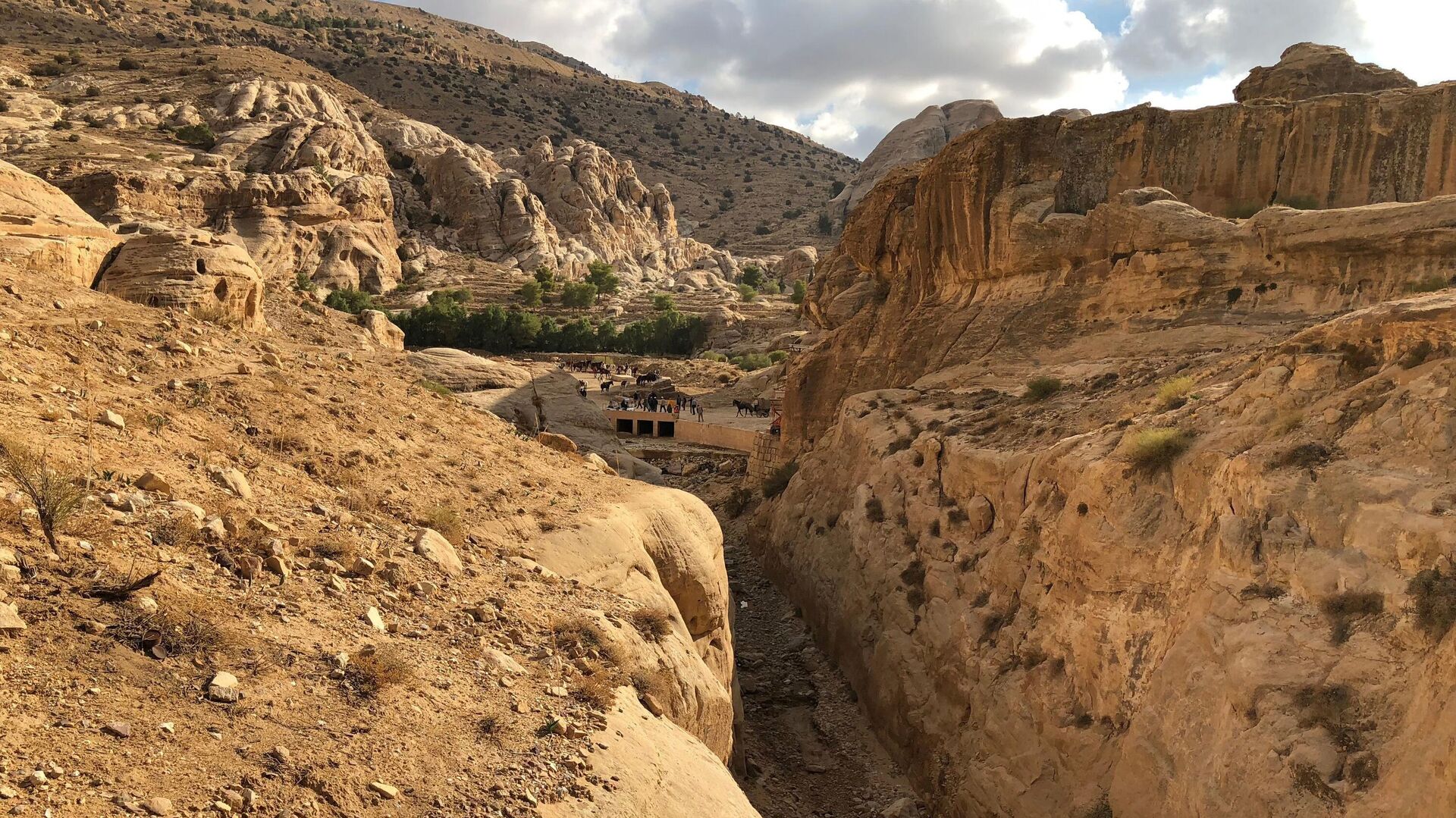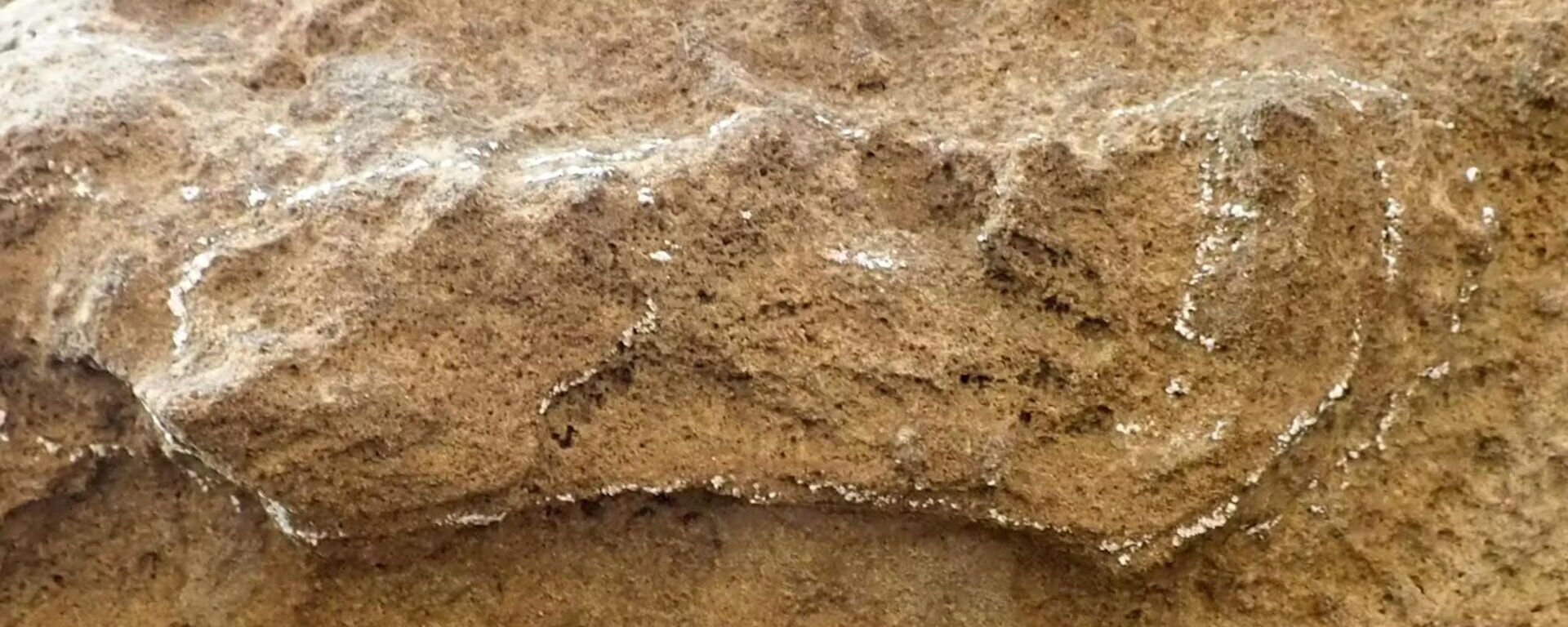https://en.sputniknews.africa/20231004/how-did-homo-sapiens-leave-africa-study-reveals-1062535646.html
How Did Homo Sapiens Leave Africa?
How Did Homo Sapiens Leave Africa?
Sputnik Africa
Previously, it was believed that humans, which evolved in Africa between 200,000 and 300,000 years ago, migrated from the Horn of Africa to southwestern Arabia... 04.10.2023, Sputnik Africa
2023-10-04T19:22+0200
2023-10-04T19:22+0200
2024-04-25T10:22+0200
sub-saharan africa
jordan
population
history
horn of africa
human
migration
https://cdn1.img.sputniknews.africa/img/07e7/0a/04/1062535818_0:0:3001:1688_1920x0_80_0_0_00b991b042b950825d24301b9ef19183.jpg
The first humans migrated from Africa 84,000 years ago to populate the rest of the world, following river routes through the Jordan Rift Valley, scientists from the University of Southampton and Shantou University in China revealed during fieldwork, media reported. Paul Carling, a professor of geomorphology at the University of Southampton, explained that hand tools were found buried in the sediments of now-dry rivers in Jordan Rift Valley and the researchers traced them back to around 84,000 years ago using luminescence dating techniques.Between 200,000 and 300,000 years ago, modern humans evolved in Africa and then moved from the continent in several stages to populate Asia and then Europe. In the past, it was believed that when sea levels were low, humans would travel from the Horn of Africa to southwestern Arabia by way of the Red Sea. But the discovery of the tools seems to confirm another theory that they took a land-only route to the north towards Jordan.The Jordan Rift Valley is a region of the Syro-African fault line that extends in the Jordan River, located in modern-day Israel and Jordan. It formed 23.8–5.3 million years ago when the Arabian Plate moved north and then east away from Africa.
https://en.sputniknews.africa/20230527/earliest-homo-sapiens-footprint-left-153000-years-ago-found-in-south-africa-1059515598.html
jordan
horn of africa
Sputnik Africa
feedback@sputniknews.com
+74956456601
MIA „Rossiya Segodnya“
2023
Samantha Arias
https://cdn1.img.sputniknews.africa/img/07e7/0a/18/1063050346_115:0:834:719_100x100_80_0_0_1682778780537fd5aa8dd2536a012c1b.jpg
Samantha Arias
https://cdn1.img.sputniknews.africa/img/07e7/0a/18/1063050346_115:0:834:719_100x100_80_0_0_1682778780537fd5aa8dd2536a012c1b.jpg
News
en_EN
Sputnik Africa
feedback@sputniknews.com
+74956456601
MIA „Rossiya Segodnya“
Sputnik Africa
feedback@sputniknews.com
+74956456601
MIA „Rossiya Segodnya“
Samantha Arias
https://cdn1.img.sputniknews.africa/img/07e7/0a/18/1063050346_115:0:834:719_100x100_80_0_0_1682778780537fd5aa8dd2536a012c1b.jpg
jordan, population, history, horn of africa, human, migration
jordan, population, history, horn of africa, human, migration
How Did Homo Sapiens Leave Africa?
19:22 04.10.2023 (Updated: 10:22 25.04.2024) Samantha Arias
Producer / Podcast host
Previously, it was believed that humans, which evolved in Africa between 200,000 and 300,000 years ago, migrated from the Horn of Africa to southwestern Arabia by way of the Red Sea – but new studies suggest another version.
The first humans migrated from Africa 84,000 years ago to populate the rest of the world, following river routes through the Jordan Rift Valley, scientists from the University of Southampton and Shantou University in China revealed during fieldwork, media reported.
"The Levant [historical geographical term that refers to the large area in the Eastern Mediterranean region of West Asia] acted as a well-watered corridor for modern humans to disperse out of Africa during the last interglacial, and we have now demonstrated this is the case in Jordan Rift Valley zone," explained Dr Mahmoud Abbas, the study's lead author from Shantou University, as cited by media.
Paul Carling, a professor of geomorphology at the University of Southampton, explained that hand tools were found buried in the sediments of now-dry rivers in Jordan Rift Valley and the researchers traced them back to around 84,000 years ago using luminescence dating techniques.
"Our newly published evidence is a key piece of the puzzle that shows humans migrated using a northern route – using small wetland areas as bases whilst hunting abundant wildlife in the drier grasslands," Carling said as cited by media.
Between 200,000 and 300,000 years ago, modern humans evolved in Africa and then moved from the continent in several stages to populate Asia and then Europe.
In the past, it was believed that when sea levels were low, humans would travel from the Horn of Africa to southwestern Arabia by way of the Red Sea. But the discovery of the
tools seems to confirm another theory that they took a land-only route to the north towards Jordan.
"Although previous studies have looked for large lakes as potential watering holes, in fact small wetlands were very important as staging posts during the migration," Carling added.
The Jordan Rift Valley is a region of the Syro-African fault line that extends in the Jordan River, located in modern-day Israel and Jordan. It formed 23.8–5.3 million years ago when the Arabian Plate moved north and then east away from
Africa.



